Ready to learn more?
Get all the details straight to your inbox!

Luther College students are eligible for nearly $100,000 in academic awards – in addition to scholarships and bursaries awarded by the U of R.
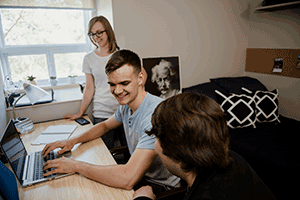
Wondering where to live? Our student residence, The Student Village at Luther College, is considered a great choice for first-year student accommodation. Individual private rooms mean you can stick to your own schedule and you never have to deal with roommate hassles.
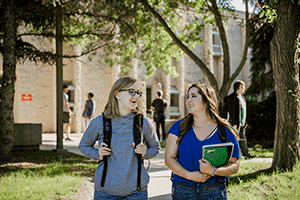
Luther College is a great choice for high school to university transition. Enjoy all the benefits of a larger campus, without feeling lost in the crowd. Our community is full of caring mentors and peers to ensure a positive student experience.
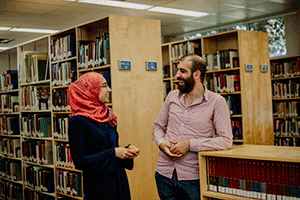
The Luther Library has over 24,000 items in its collection, 5,000 books checked out per year, and 7,000 students who come through its door per month.
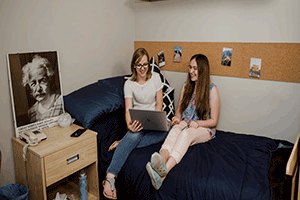
Our student residence, The Student Village at Luther College, welcomes residents from ALL post-secondary institutions in Regina. Rooms come with a meal plan, free laundry, free wi-fi, and a great sense of community.
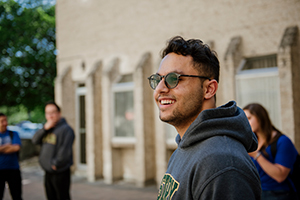
Every degree program at Luther College offers a study abroad option and an optional experiential learning component where you gain real world experience and get paid while going to school!
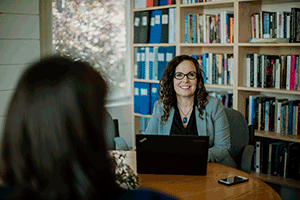
Free enrolment counselling support and invaluable one-on-one academic advising are available for all programs at Luther College.
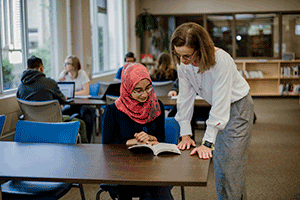
Luther College is recognized for its high standards of teaching, focused research, and one-on-one academic advising. We value and protect this heritage of excellence in scholarship, freedom of inquiry, and faithful seeking after truth.
Get all the details straight to your inbox!
By Francesco Freddolini (Art History)
We were all students once, and some experiences made during that wonderful season of life – when the quotidian was made by books to devour, fascinating questions to ask, and dreams about the future – have a lasting impact on our lives.
My story dates back to September 2001 when, as an undergraduate student at the University of Pisa, majoring in Art History, I passed my Linguistics exam. I studied hard and, more importantly, I did my best to think deeply while preparing for my exam. As an Art History student I thought it made sense to address the fact that one the founders of the Visual Arts department in my university, Carlo Ludovico Ragghianti (1910–1987), had theorized what he called a “Linguistics of Vision” based on structuralism, and especially on Ferdinand de Saussure’s work. In Italy the exams were oral – an interview with the professor after the completion of the course – and when the professor asked a question about Ferdinand de Saussure I thought I had my opportunity to shine and, more importantly, to engage in a meaningful discussion. But when I mentioned Ragghianti’s theories the professor dismissed my statements as completely off topic because – he maintained – Linguistics is all about the verbal communication. I insisted, mentioning the book La critica della forma (The Critique of Form) that Ragghianti had written, but my efforts were in vain and actually annoyed the professor. I still managed to get a good grade, but I wasn’t happy because I realized that my examiner had no interest in the student he had in front of him: he overtly refused to consider that he was teaching to a cohort of art history students, an audience that may look at problems from a perspective different than his.
That exam taught me an important lesson, and as soon as I left the professor’s office I said to myself: “If one day I’ll became a professor I will never adopt that behaviour, and I will always consider the background of the students I have in front of me.”
That day arrived (yes, sometimes dreams do come true!), and 15 years later, when I walk into a classroom, or when I talk to students regarding their papers, I often think about my Linguistics exam. I teach art history, but there isn’t only one history of art, and that is – in my view – the most intriguing aspect of academic life. Students majoring in history might want to look at images as evidence for their social, political, or military history; someone focusing on geography might be interested in architecture and urbanism; a practicing artist might want to study the techniques of painting… Such a variety of perspectives is a blessing and enriches every academic discipline. That’s why I always encourage my students to find a connection between their interests and what they learn in class. I don’t want my students to just borrow my eyes, my vision, and my background, when they look at art. That would be just too easy, for them and for me. I want them to look with their own eyes.